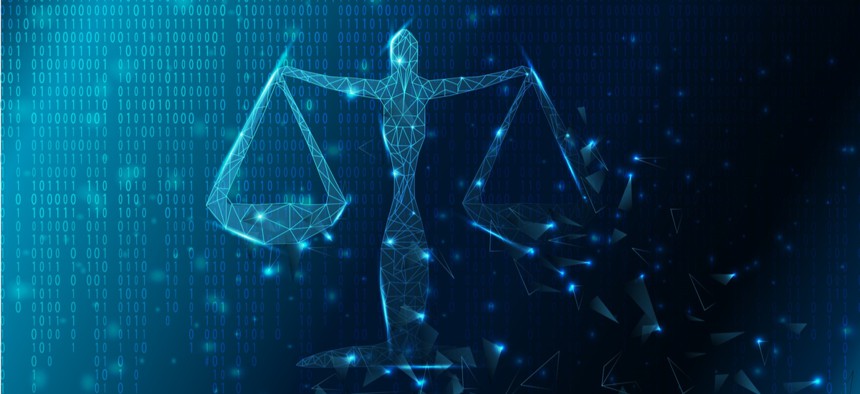Supreme Court to Hear Challenge on State Code Copyrights

Nikush/Shutterstock.com
Georgia holds a copyright for its annotated state code, which sells for $404, and sued to block a website from distributing free copies of the document.
The U.S. Supreme Court agreed Monday to hear a case that will decide whether states can copyright and therefore prevent free distribution of annotated versions of their legal codes.
The case was brought by the state of Georgia, which sued the operator of a website that provides free access to legal documents. Georgia is supported by eight other states seeking to retain copyrights over annotated versions of state statute.
The Atlanta-based 11th U.S. Circuit Court of Appeals ruled in 2018 in favor of Carl Malamud, operator of Public.Resource.org, who had purchased copies of the annotated Official Code of Georgia and published it online for free. The court found the annotated code was “intrinsically public domain material and, therefore, uncopyrightable.”
Government edicts such as judicial opinions, public ordinances and laws are not subject to copyright laws. But Georgia claims its annotated state code, which includes both the exact wording of state laws as well as summaries of legal opinions and other rulings used for analysis and interpretation, should be protected by copyright.
While Georgia’s official code is available to the public for free, the state has an agreement with LexisNexus under which the data collection company has exclusive access to sell volumes of the annotated version. Under the agreement, the company writes the annotations free of charge and sells volumes of the annotated code for $404. Georgia receives royalties from those sales.
Twenty-two states and the District of Columbia have copyrights for their annotated codes. Eight states - Arkansas, Alabama, Idaho, Kansas, Mississippi, South Carolina, South Dakota, and Tennessee – filed an amicus brief in support of Georgia urging the Supreme Court to hear the case.
The states argue that without the copyright protections, third parties like LexisNexus would likely no longer agree to provide the annotations for free and states would either have to pony up and pay them for the legal analysis or stop providing annotated versions of their code.
“The loss of annotated codes would be costly,” the states argued. “Annotations are not themselves the law, nor authoritative guidance on it. But despite the advent of electronic legal research, lawyers and nonlawyers alike continue to look to the annotations in annotated codes as a starting point in researching how state law has been interpreted.”
Although the 11th Circuit ruled in Malamud’s favor, he also asked the Supreme Court to hear the case, saying without a definitive ruling on the matter he would likely continue to be threatened with copyright infringement lawsuits from other entities.
“Repeating the laws of our country should not be considered a crime,” Malamud told the New York Times earlier this year. “I would like the Supreme Court to tell us which laws we are allowed to speak.”
He declined to comment further when reached Monday.
Attorney Josh Johnson, who is representing Georgia said the state was pleased with the court’s decision to hear the case. The 11th Circuit ruling “threatens to upend Georgia’s longstanding arrangement for creating and distributing annotations useful to guide legal research,” he said.
But a coalition of groups that conduct legal research and support open access to legal documents, including Stanford Law School’s Juelsgaard Intellectual Property and Innovation Clinic, OpenGov, Justia, and the Free Law Project sided with Public Resource.
“Uniform and consistent access to the law nationwide is an essential component of due process and the rule of law; everyone in our society must have fair and meaningful notice of conduct that is forbidden or required,” the groups wrote in an amicus brief urging the court to hear the case and side with Public Resource.
They said case law regarding use of annotated state codes varied across the United States and prevented some of their organizations from offering free access to those documents through their databases.





